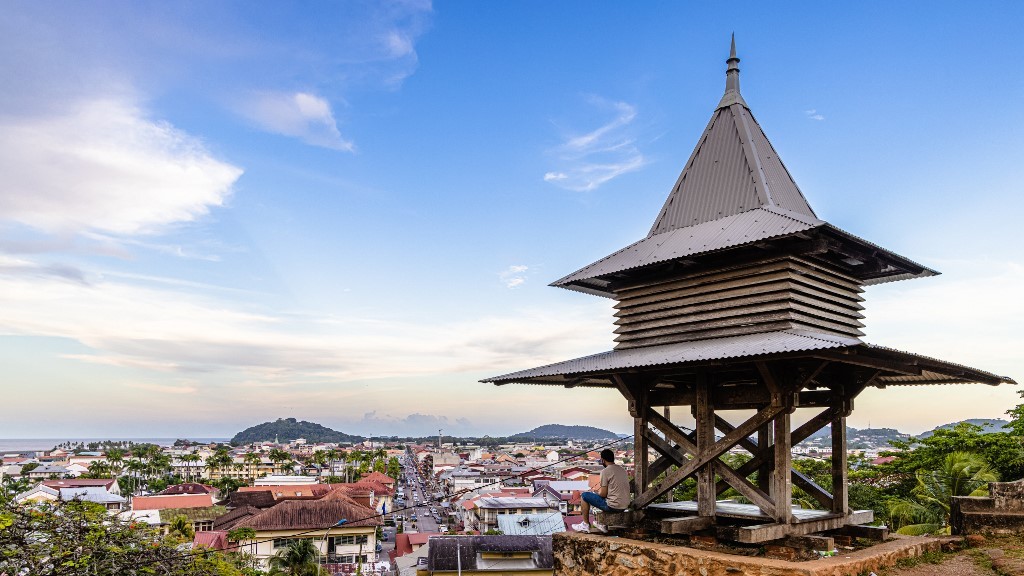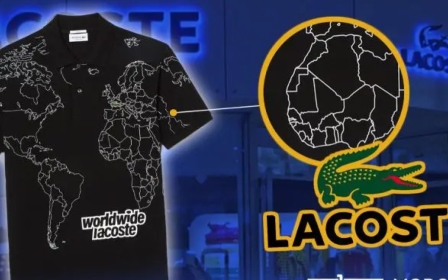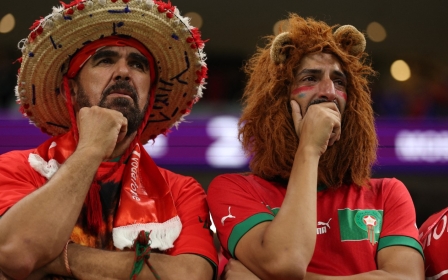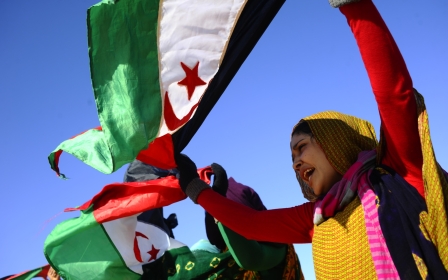Morocco: How French Guiana became a refuge for Sahrawis fleeing repression
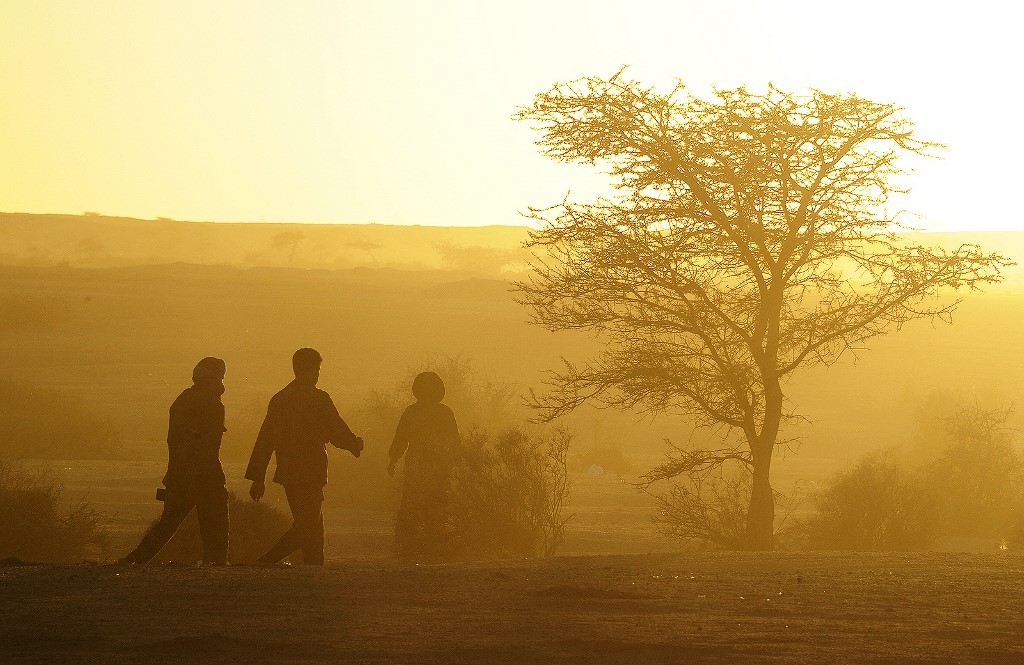
Seated alone by the sea on the terrace of Les Amandiers, a famous cafe in Cayenne, Said* frantically exchanges vocal notes with his family. Amid the conversations in Creole, French and Brazilian that surround him, his Hassani Arabic stands out. But perhaps less and less.
Said, 25, arrived in French Guiana in December. He is originally from Guelmim, in southwestern Morocco, and says he is fleeing "persecution from the Moroccan regime" in what he calls "occupied Western Sahara".
Western Sahara is 80 percent controlled by Morocco but considered a "non-autonomous territory" by the UN.
This situation has pitted Rabat against the Sahrawi separatists of the Polisario Front, an armed political movement demanding the independence of Western Sahara and who have been supported by Algiers, since 1975.
Since the recognition of the "Moroccanness" of Western Sahara by Washington in December 2020, in return for the resumption of Morocco's relations with Israel, Rabat has been pressing the international community to follow the American example.
New MEE newsletter: Jerusalem Dispatch
Sign up to get the latest insights and analysis on Israel-Palestine, alongside Turkey Unpacked and other MEE newsletters
For several months now, more and more Sahrawis like Said have been arriving in this French territory in South America to seek asylum.
The phenomenon is too recent to be quantified, but it has been documented by the French refugee rights group Cimade.
Several Sahrawi activists from France interviewed by Middle East Eye confirm this spike in Sahrawi asylum seekers, which is also corroborated by a simple walk through the streets of Cayenne.
Stopover in Turkey
Moroccans wishing to migrate to Europe usually try to reach it via the Mediterranean.
Those who leave the south of the kingdom sometimes embark from Tan-Tan (in the southwest of Morocco) and head towards the Canary Islands.
But the danger of the crossing is increasingly dissuading people from leaving, several asylum seekers tell MEE.
Sahrawis, therefore, decide to fly to Brazil after a stopover in Turkey, two countries to which they have visa-free access. This migratory route has been used for several years now by Syrians, Afghans and Palestinians.
We met Tel Yacoub* in another cafe in downtown Cayenne. He showed us a Facebook post reporting several migrants found drowned in Sidi Ifni, off the Atlantic coast, justifying his trip to Brazil as a safer alternative.
Yacoub hails from a village near Assab, an oasis in southwestern Morocco, about 60km from the 2,700km Western Sahara Wall, erected by Morocco in the 1980s and which cuts Western Sahara into two parts, one controlled by Morocco and the other by the Polisario Front.
Yacoub said he learned of the existence of this alternative route from news reports on Al Jazeera.
Arriving in Sao Paulo, asylum seekers usually take several flights to reach Macapa, in northeastern Brazil.
From there, by bus they reach the Oyapock River, a natural border with French Guiana.
Said opted for a stopover in Doha, during the FIFA World Cup in Qatar, to avoid suspicion from Moroccan police.
The total cost of his trip was around 2,000 euros ($2,250).
Said says it was in 2013 that the Moroccan authorities put him - a member of a famous activist family - as he puts it, "in the crosshairs".
Guelmim is, however, 300km north of Western Sahara.
Yacoub proudly recounted that he took part in protests, stood up to the geography teacher who presented a map of Morocco that included the Sahara, and sprayed Sahrawi slogans and flags on the walls of the city.
During his studies, he organised rallies on the history of the Sahara and political prisoners with other activists.
This resulted in a court summons for his parents, detention in police custody for him, and even torture, he tells MEE.
The UN human rights office, the UNHCR, has denounced the Moroccan crackdown on Sahrawi freedoms of expression, peaceful assembly, and association.
This includes "unnecessary and disproportionate use of force" by security forces to disperse demonstrations, as well as: "Searches without warrants, arbitrary arrests and detentions, unlawful and arbitrary surveillance measures, harassment, intimidation and destruction of property."
Sleep on a balcony
It was because Yacoub "ended up in the hospital" and his situation was the most problematic that he was the first of his siblings to leave.
"Inshallah, my big brother will join me soon," he hopes.
For the sake of doing the right thing, perhaps for fear of not being taken seriously, Said substantiates his story by showing papers from the French refugee office OFPRA and the French Office for Immigration and Integration, which he has meticulously filed in a document holder.
The young economics graduate is now awaiting response from the French administration.
The 28-year-old Hassan*, whom we met at Amandiers cafe, has already received a decision and is officially recognised as a refugee. Like the others, he lives in a suburb of Cayenne. He rents a room for 150 euros a month, thanks to the 250 euros he is paid by the state and his family's savings.
Amina*, a young Saharawi activist who arrived in Cayenne a few weeks ago without mastering a word of French or English, says she sleeps on a balcony belonging to an acquaintance.
"French Guiana is a territory that has always had a fairly high number of asylum applications but an extremely low number of accommodations," Lucie Curet, Cimade's representative in the Americas, told MEE.
The state must provide accommodation for the duration of the application procedure: this may be a place in a reception centre, in emergency accommodation for asylum seekers, in a hotel, or in an apartment.
In general, part of the allowance for asylum seekers is automatically taken to pay for this accommodation at the hotel. "While 40 percent of asylum seekers were housed in France, the rate was below 10 percent here," she added.
Until 2021, the overwhelming majority came from Haiti and relied on the diaspora to find accommodation, often in slums.
Faced with the arrival of people from the Middle East who were sleeping in the streets of the city centre, the prefecture finally set up accommodation structures.
'French Guiana is a territory that has always had a fairly high number of asylum applications but an extremely low number of accommodations'
- Lucie Curet, Cimade
But their capacities remain insufficient.
Hassan, Said, Yacoub and the other Sahrawis MEE met all claim not to have access to this system.
These free public structures are reserved for families and vulnerable people.
However, they do not complain about their living conditions. One of them insists: "The objective was to be safe. And that is the case now, so we are not disappointed."
Although Lucie Curet remarks that French Guiana now registers fairly high protection rates, these young people are not certain of obtaining the desired status.
In 2021, OFPRA granted protection to 41 Sahrawis while 492 others were denied.
Included in this total are people from Western Sahara on either side of the wall, including refugees from Tindouf, in Algeria, who are opposed to the Polisario Front.
Even if the French administration has responded positively in this case, Yacoub does not wish to join the metropolis and would prefer to stay in French Guiana.
"Even if life is expensive, the towns are small and the climate is mild, like ours." So he is ready, for his own safety, to exchange the dry heat of southern Morocco for the humidity of the Amazon.
*Names have been changed to protect identities.
This article is a translation from French.
Middle East Eye delivers independent and unrivalled coverage and analysis of the Middle East, North Africa and beyond. To learn more about republishing this content and the associated fees, please fill out this form. More about MEE can be found here.



